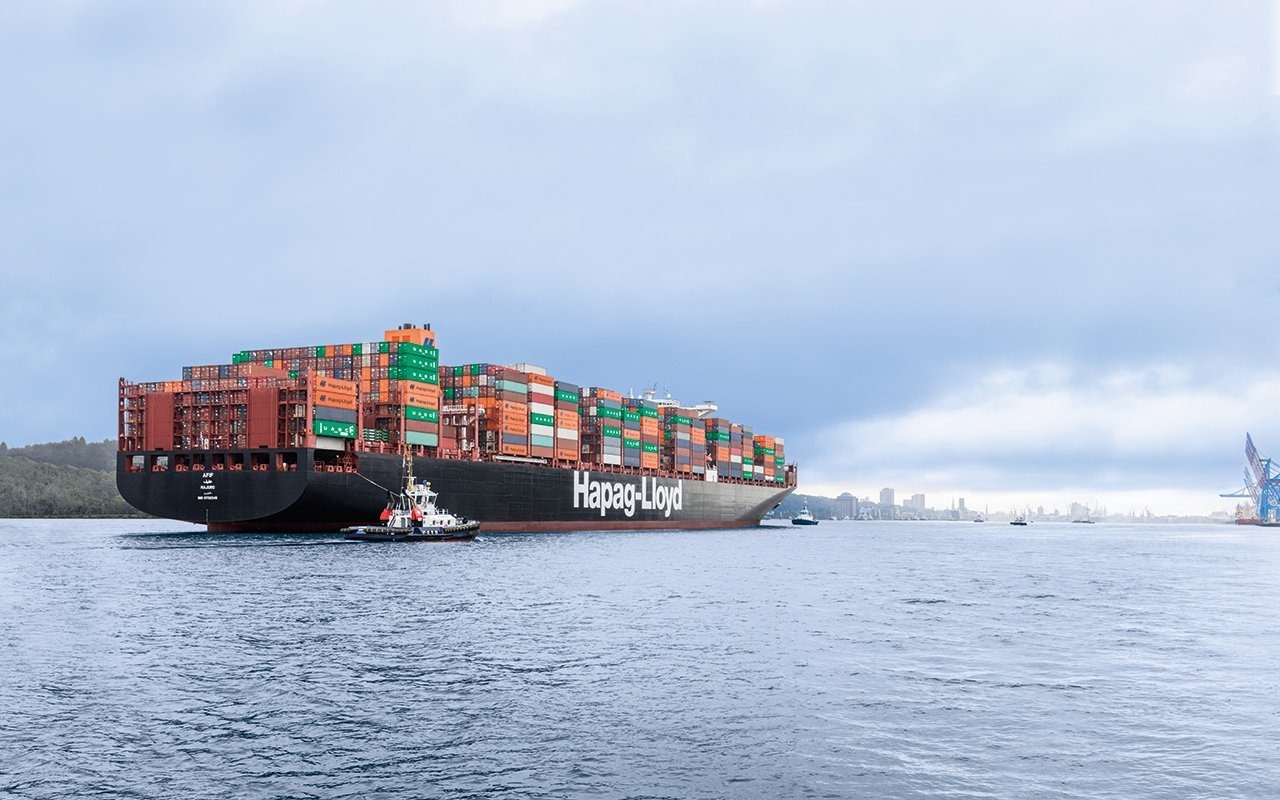
European road transport seemed to have returned to an acceptable level of activity until it found itself confronted by the shock provoked by the second wave of the coronavirus. The International Road Transport Union has warned that there could be wide-scale bankruptcies in 2021 if governments do not take action.
After having experienced a collapse in activity in the first wave of the coronavirus epidemic in the spring, the big European road transport markets gradually returned to satisfactory activity levels from June to October. This resulted, moreover, in a limited increase in European transport prices during the third quarter.
The second wave of Covid-19 in the autumn undermined this beginning of a recovery, however. In its latest study of the impact of the pandemic on road transport, the International Road Transport Union (IRU) has revised upwards its lost revenue estimates. In June, it forecast they would total €62 billion. According to the estimates it published in November, however, European road hauliers can expect to register lost revenues totalling €108 billion in 2020, which is to say a reduction of 20% compared to 2019.
Naturally enough, investments have also diminished and this was felt particularly on the industrial vehicle market. According to the European Automobile Manufacturers' Association (ACEA), new industrial vehicle registrations fell 32.6% between January and September by comparison with the same period in 2019. Particularly affected were Germany (-30.6%), France (-30.5%), Spain (-25.7% and Italy (-19.8%).
1/ Third quarter recovery
The third quarter showed a marked recovery in the European economy following the collapse caused by the introduction of the spring lockdowns to prevent the spread of the Covid-19 epidemic. The European Union's GDP increased 11.5% over the previous three months. The recovery was seen all over Europe to a greater or lesser extent.
The road transport sector naturally played a role in the recovery from the end of the second quarter on. In Germany, as indicated by the German federal freight bureau (BAG), toll roads (MAUT) registered a 0.3% increase in traffic in October 2020 compared to September and a 1% increase compared to October 2019. Since truck travel is closely linked to industrial production in Germany, these figures are evidence of the economic recovery in Germany in October 2020.
In Poland in the third quarter, the economy recovered quickly but with one proviso, according to the experts. The increase in consumption was largely driven by "deferred demand", which is to say demand not met during the first wave of the pandemic. Hauliers nevertheless got off to a flying start as they returned to the roads!
In France, there was a tangible improvement in July but this was followed by a considerable slowdown.
2/ E-commerce success
The economic improvement in the third quarter was largely driven by retail sales of industrial and food products and e-commerce.
In the EU, retail sales of non-food products increased 5.7% (29.2% for mail order and Internet sales, 13% for textiles, clothes and shoes) and food, drink and tobacco sales 4.6% but fuel sales fell 9.5%.
In France, according to the retail trade report published by the Bank of France, retail sales increased 6% over the year to October by volume after showing a 3.3% rise in September. This growth showed both in sales of food products (+5.3%) and industrial products (+6.2%). The strongest growth was in electronic goods (+16.6%), DIY (23.8%) and games and toys (46.6%). Households probably made some of their Christmas purchases early out of fear of the lockdown to come.
E-commerce was clearly the main winner in 2020. Growth throughout Europe is expected to reach 12.7%. In France, according to e-commerce and distance selling federation FEVAD, e-commerce turnover, taking all products and services together, is likely to rise 6% over the year to reach a total of €109.6 billion. Growth was negatively affected, however, by a fall in transport, travel and ticket sales after they showed 11.5% growth in 2019. FEVAD said that the public health crisis had nevertheless boosted sales of food and general consumer products, beauty and health products and fashion and dresswear.
The big global e-commerce platforms like Alibaba and Amazon and Germany's Zalando all did well. In the third quarter, Zalando increased its sales by nearly 22% to €1.85 billion. As well as organic growth, the company benefited from the increase in sales on its website by retailers whose shops had been closed or had their activities restricted because of the pandemic.
Parcels distributors clearly did well out of this trend. Deutsche Post-DHL increased its 2020 profit forecast. Chief executive Frank Appel announced that operating results would exceed €4.1 billion, compared to €3.5 billion initially expected. The main reasons were a profitable express delivery business and huge growth in the number of parcels sent. Five weeks before Christmas, 2020 parcel deliveries had already overtaken the total for the whole of 2019. The French post office is also expecting record deliveries. The sharp increase in volumes seen during the first lockdown was maintained subsequently, DPD Group said, indicating that it had been through an "exceptional" six-month period.
3/ Great difficulties in the automobile industry
The automobile industry, which is essential for the European road transport industry, recovered a little on some markets during the second quarter but the first half was a terrible one. In the European Union overall, unit vehicle sales fell 28.8% during the first nine months of the year by comparison with 2019 to 7 million, according to the European Automobile Manufacturers' Association (ACEA). Spain suffered the greatest drop in vehicle output (-38.3%), followed by Italy (-34.2%), France (-28.9%) and Germany (-25.5%). Production fell in much the same proportions. The European Union produced 9.7 million vehicles between January and September, which is to say 29.2% less than in the corresponding period in 2019. The 20 main producing countries suffered two-figure reductions but France was the record-holder with a 49.1% drop. Between January and September, therefore, it fell from fifth place behind Germany and Spain to fifth place behind the Czech Republic and Slovakia.
There were nevertheless some positive signs in September, which partly explains the growth in freight volumes transported by road in the third quarter and the start of the fourth quarter. In September, sales in the automobile sector showed a 3.1% increase over the preceding 12 months, which was driven, according to French business daily Les Echos, by vehicles sales in Italy and Germany.
In Germany, some automobile manufacturers experienced a marked improvement. Astonishingly, BMW made a bigger profit in the third quarter of this year than in the same period last year. German automobile industry orders increased 5.1% over the previous month in September to put them 5.8% ahead of their February pre-crisis level. Managers are remaining cautious, however. BMW chief executive Oliver Zips considers that the group is on the right path to achieving its annual targets but drew attention to the growing uncertainty caused by the increase in the number of Covid-19 cases. "New lockdowns can have a grave effect on our commercial development in the fourth quarter and the start of 2021," he said. Hildegard Müller, chairperson of the German automobile industry grouping VDA, confirmed this, saying, "Unfortunately, we have no reason to increase our forecasts. On the contrary, if Covid-19 continues to develop, clients will want to remain in safety rather than buying cars."
4/ The relapse
All in all, therefore, the economic recovery boosted road transport activity in the third quarter until the arrival of the second wave of the epidemic.
In France, a study carried out by the National Road Committee on road freight transports costs, the impact of Covid and the outlook for 2021 shows that the recovery was progressive and following a steady upward pattern until mid-October but that the second wave of Covid-19 stopped this progression and replaced it with a new downward movement.
Certainly, in a survey carried out among 800 hauliers between 16 and 23 November, French road transport industry federation FNTR found that only 17% of those questioned had been forced to partially shut down their business after a further three weeks of lockdown, compared to 33% in June. But 49% of them have seen a reduction in their business activity compared to the same period last year. Particularly affected are very small companies, which have seen their activity reduced by a quarter on average, compared to an average 17% reduction among survey respondents generally.
Similarly, transporters are affected in very different ways according to the sector of activity of their clients. The activities most affected have been the transportation of dangerous materials, containers and vehicles and international transportation.
The same can be said of the German chemicals industry. The second wave of coronavirus and the lockdowns which came with it in many countries weighed on its activity. "After a recovery in the third quarter, commercial prospects deteriorated again," said Christian Kullmann, chairman of German chemical industry body VCI. "The industry is facing a difficult last quarter."
In addition to the falling freight volumes and the unfavourable outlook, a new threat has begun darkening the already sombre situation. Throughout Europe, payments arrears are on the increase. In Spain, the transport bodies federation FENADISMER signalled that the average payment period in the road transport sector in November was 85 days, well over the 78-day average (!) in the pre-Covid period. It added that 72% of transporters' clients did not respect the law on payment times and that 36% paid their bills after more than 90 days.
4/ The threat of bankruptcies
The situation is grave. The IRU has called on governments worldwide to save road transport companies. In a study covering 79 countries, it showed that small and medium-sized companies barely benefited from the rescue plans set up to deal with the effects of the pandemic. Road transporters' most urgent problem is liquidity. "The risk of default and insolvency is high over the coming year," the IRU said. "With a bleak economic outlook, and huge forecasted losses across the sector, many road transport companies are facing bankruptcy in the coming months".
Ron Van Het Hof, the German chairman of credit-insurer Euler Hermes, warned that the January-March period would be critical. "Only those able to give themselves a little cushion at Christmas will be able be able to stay afloat until the spring," he said. This period is a crucial one for bankruptcies.
Road hauliers are in danger, particularly in Europe. They urgently need financial support, particularly in the form of cash subsidies, flexibility over insurance payments and ongoing reductions on taxes and social charges. We will return to this subject in January when we will be looking at prospects in 2021.

Our latest articles
-
Subscriber 3 min 24/02/2026Lire l'article -
Hapag-Lloyd - Zim: a shipping deal with geostrategic implications
Lire l'article -
European road freight: the spot market is stalling
Lire l'article


